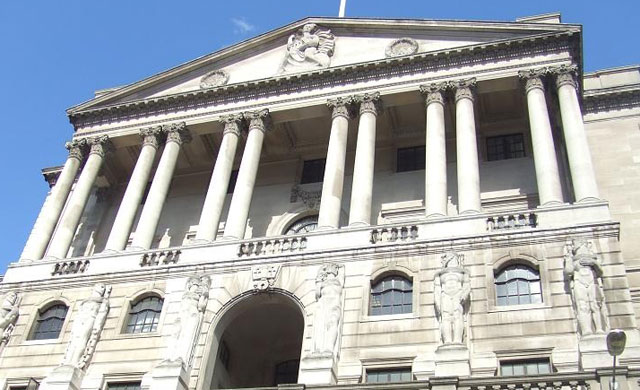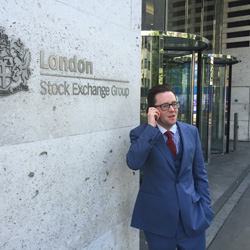“What a tangled web we weave, when first we practice to deceive.”

Was there a banking scandal in Sir Walter Scott’s day, or did he foresee one coming? Whatever, the answer, he sure got it right. The banking world is a mess. It seems like Barclays has been in the headlines more often in the last few months than the Olympics. Before Barclays, it was the Royal Bank of Scotland. Then along came Standard Chartered with its dirty laundry.
People are beginning to ask, “When will these banking scandals end?” The answer is “Not anytime soon. Especially with the Libor scandal.” If you think it’s over when banks like Barclays pay £290 million in fines for rigging the Libor, and Standard Chartered “settles” for £217 million for laundering Iranian money, think again. If they were doing it, you can be certain others were also.
Martin Wheatley, Managing Director of the Financial Services Authority is continuing to conduct a government-ordered review of the Libor issue. He has already stated that the system is no longer a “viable option.” He must have spotted the fox in the hen house! It’s amazing someone hadn’t seen the fox earlier, because he’s been there all the time.
Now the attorneys general of the states of New York and Connecticut have issued subpoenas to seven banks for questioning about involvement in the manipulation of the Libor rate. Barklays, Citigroup, Deutsche Bank, HSBC, JP Morgan Chase, RBS, and UBS are all scheduled to appear under a very real threat of potential criminal prosecution for fraud.
How Much Is 2 Plus 2?
That question was actually asked by the CEO of a major US manufacturer who was interviewing three finalist candidates to be his CFO. The one who said, “How much do you want it to be?” got the job. That gentleman knew that, at the end of the day, the answer always had to be what the man at the top wanted it to be. Are you getting my drift?
The Libor scandal all boils down to the casual collusion – or the outright conspiracy – of the princes of the banking realm to make 2 plus 2 look like 6, if that’s what would make their banks look better. It’s fuzzy math at best, but it’s probably much worse than that.
It Doesn’t Work the Way You Think It Does
If you think that banks are places where smiling tellers greet customers and help them with transactions, think again. That is their public face. It’s on the upper floors where the real business takes place. It’s “up there somewhere beneath the pale moonlight” that bankers try to find ways to make more money without it appearing like they are doing so. Theoretically, for instance, some astute financial guru might come up with the idea that the bank could make a lot more money by over-extending mortgages and credit, knowing that the borrowers will have difficult repaying. The idea is that the bank would make even more money than on the interest on the loan, by collecting late fees and other penalties. Theoretically, a bank could even set goals and have inter-branch contests and incentives to increase income from the idea.
In a broad sense, the Libor scandal issues from the same source thinking, only it is not collusion within a bank, but between banks. On what is basically the honor system, banks report what they “predict” the interest rate other banks would charge them for overnight use of cash. This is a tool used to meet regulatory standards ensuring the bank’s liquidity and its ability to withstand a run on it in a time of crisis. The simplest explanation of how the Libor works is that it is an average of the amounts that the participating banks submit. Lending and borrowing worldwide are calculated on that rate. A variance of 0.01% can cost tens of millions of pounds in a banking day.
But what if, especially in times of crisis, some banks “needed a little help” keeping their numbers looking good? Given the Libor system, the most practical way to do that is to call your buddies over at Bank A and Bank B and ask them to “fudge” their prediction for today’s numbers. Something is not quite right about that. Some people might be inclined to call that fraud or conspiracy.
Thomas Reuters, the company responsible for compiling the rate estimates and creating the Libor rates, told the British Bankers Association in 2008 that something was amiss. They regarded some rate submissions as absolutely implausible. They also noticed that submissions from several banks were beginning to come later and later in the day. Despite their claims to the contrary, the BBA did very little to investigate the concerns reported by Reuters.
Did someone mention, “What a tangled web we weave, when first we practice to deceive?” This is more than a scandal. This is a mess. And it’s far from over. When it is, it is possible that a large number of those who have been making big bonuses will be looking for handouts. Some may be given “3 hots and a cot.”

 Hot Features
Hot Features













